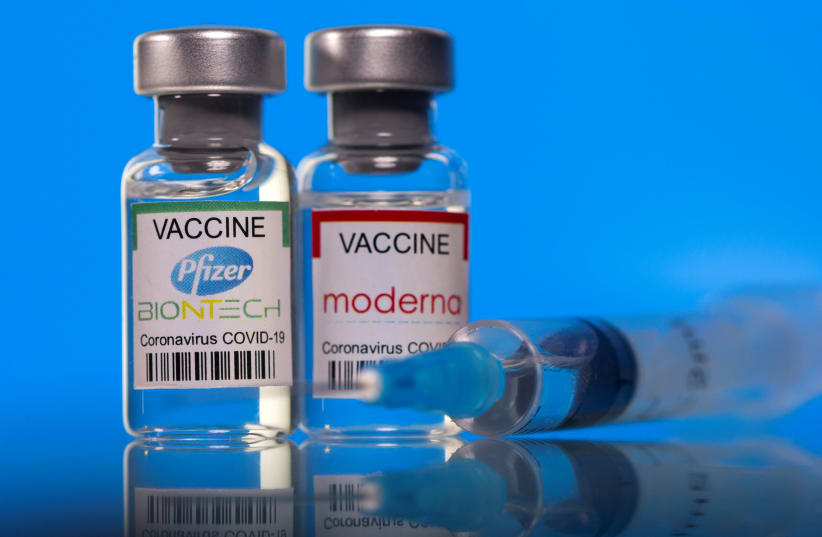In order to verify if an individual is protected against corona – whether after recovery or after being vaccinated – the most common tool used is to assess the presence of antibodies and their level.
This approach, however, does not take into consideration another important part of the immune system: the T cell memory.
Although more difficult to evaluate, T cell memory represents a fundamental factor in the immunity against the virus and may be able to ensure protection after the antibodies are gone, experts said.
“We have two immune systems in our body, one that is called the innate immune system, and one that is called the adaptive immune system,” said Prof. Cyrille Cohen, head of the immunotherapy laboratory at Bar-Ilan University. “The adaptive immune system is composed of two types of cells, B cells that can make antibodies, and T cells that can kill cells in our body that are infected by viruses, or that are cancerous.”
Cohen explained that when the body first encounters a pathogen, it takes about a week for it to understand how to make the best antibodies and how to make the best T cells to fight it.
“At this point, the body produces a lot of cells that make antibodies and a lot of T cells,” the professor said. “When the threat is over, most of those cells die but a tiny percentage of them remain, and this is what we call the memory T cells, or memory B cells.”
Already trained to fight the specific disease, these cells reactivate, if needed, even after a long time, allowing the body to respond to the threat in one or two days, instead of a week.
“Maintaining a high level of antibodies would be impractical for the body, so the immune system has this other beautiful mechanism,” said Prof. Michal Linial, director of the Center for Computational Biology at the Hebrew University.
However, testing the presence and effectiveness of these memory cells is much harder, requiring procedures and equipment that can be found only in specialized laboratories.
“Part of the reason that their quantity is very limited is that they must be extracted from bone marrow, which is a pretty painful procedure,” Linial said.
The experts noted that it is too early to have a complete picture of the situation regarding immunity against COVID, but Cohen said that initial data are promising.
“For example, a recent study showed that there was no significant difference between T cell memory of asymptomatic patients and symptomatic patients, and therefore the severity of the disease does not appear to impact the number of T cells,” Linial said. “Moreover, we have seen that this memory cells can last quite long, a few months after the infection.”
In addition, there are indications that T cell memory developed due to infection by another type of coronavirus, which is a family of several viruses, might also be effective against COVID-19.
According to Cohen, it is going to take some time, and especially some real-world data, to have a clearer picture of the situation.
“People have to remember that we are dealing with a new virus and a new type of vaccine, but I am very optimistic,” he said.
Linial said that while it is really early, in his estimation “those who appear to have a very high level of antibodies will likely have also a high level of T cell memory, but those who have a low level of antibodies won’t probably have that.”
